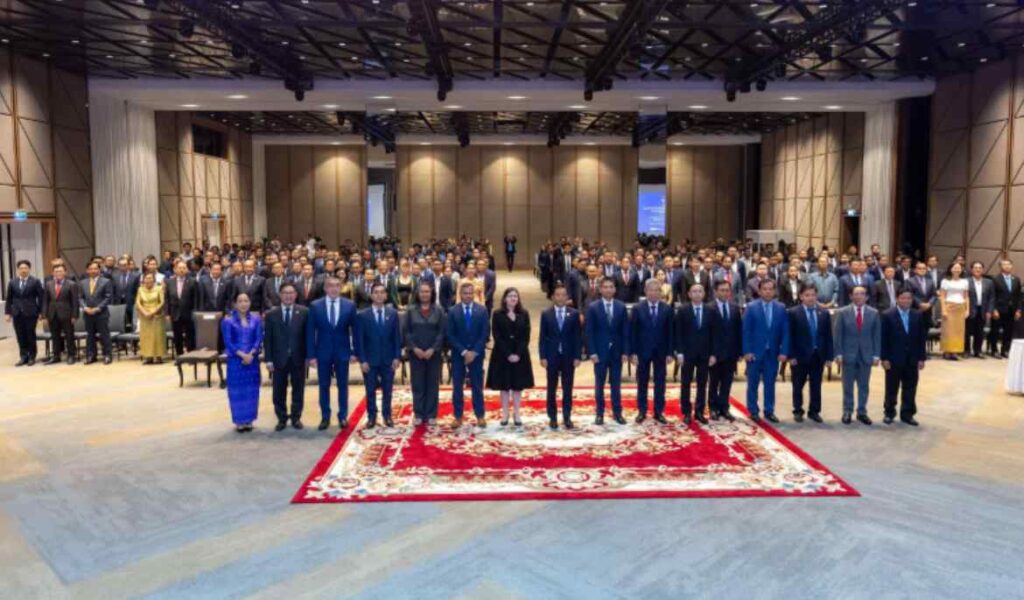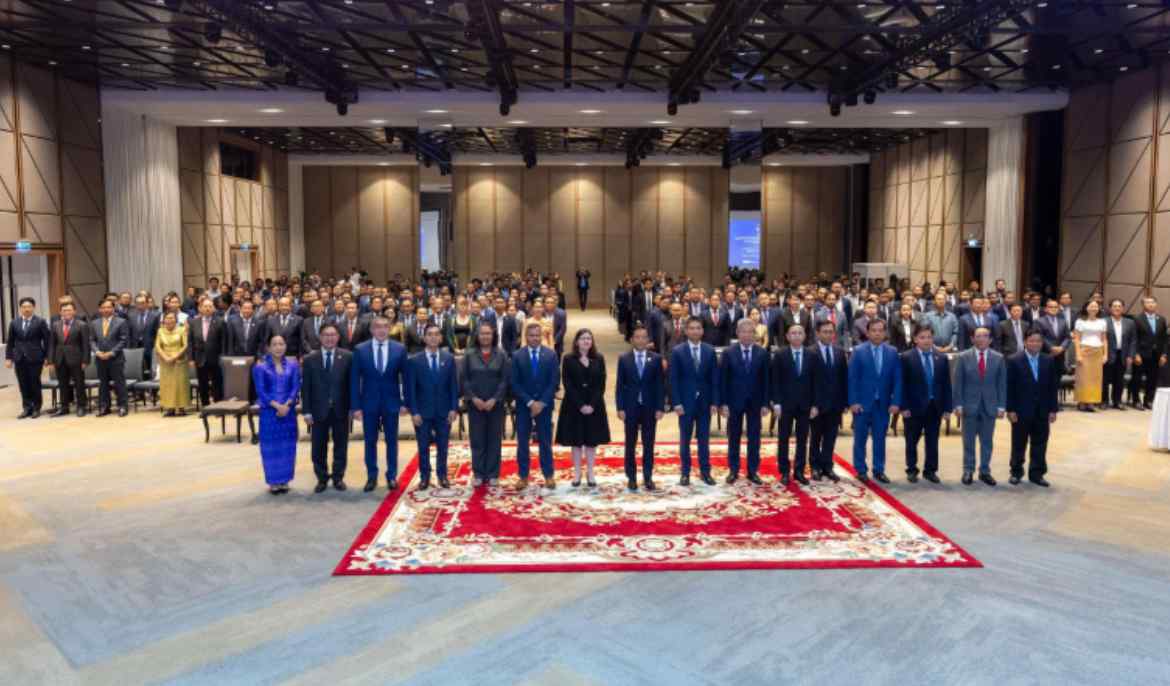Cambodia Investment Review
Cambodia has officially launched a new Monitoring and Evaluation (M&E) Framework to drive the implementation of its National Strategy on the Development of the Informal Economy (NSIED) 2023–2028, marking a significant step toward formalising a sector that currently accounts for approximately 88% of the national workforce.
Developed under the leadership of the Coordinating Committee on Informal Economy Development (CCIED) and chaired by H.E. Hem Vanndy, Minister of Industry, Science, Technology and Innovation (MISTI), the Framework was created in collaboration with key development partners, including the Australian Government, the United Nations Development Programme (UNDP), and the International Labour Organization (ILO).
Enhancing Data-Driven Policymaking for the Informal Sector
The new M&E Framework aims to strengthen transparency, inter-ministerial coordination, and evidence-based policymaking for informal economy development. It provides tools for real-time tracking and reporting and is designed to ensure that informal workers are increasingly integrated into formal structures, with improved access to social protection, legal recognition, training, and finance.
H.E. Hem Vanndy emphasised the strategic importance of the Framework, stating that it “is a vital step in further strengthening the implementation of the National Strategy for Developing the Informal Economy. It will allow the Royal Government to track real progress, make timely decisions, and improve accountability among all implementing actors.”
The strategy reflects Cambodia’s broader commitment to inclusive growth and economic resilience, as outlined in national development plans including the Rectangular Strategy Phase IV and the National Strategic Development Plan.

Backing from Australia and UNDP
Australia, through its Australia-Cambodia Development Partnership Plan 2025–2029, has played a central role in supporting the development of the M&E dashboard and broader institutional strengthening.
H.E. Derek Yip, Australian Ambassador to Cambodia, said the initiative was well aligned with Australia’s development priorities in the Kingdom. “Australia is pleased to support the development of a robust Monitoring & Evaluation dashboard that strengthens transparency, coordination and evidence-based policy implementation,” he said. “This is part of our wider commitment to resilient, inclusive and sustainable economic growth in Cambodia.”
UNDP Cambodia echoed this support, noting the significant potential of the informal economy to drive inclusive prosperity if equipped with the right policy tools. Mr. Shakeel Ahmad, Deputy Resident Representative of UNDP Cambodia, said: “While informal work often lacks protections and exposes workers to vulnerabilities, it also holds the potential to be a powerful engine for inclusive growth—if supported with the right policies and tools. The NSIED, launched in October 2023, is a bold step in this direction.”
He added that as part of its 2024–2028 Country Programme, UNDP remains committed to supporting the NSIED Action Plan “through robust monitoring systems, incentive design, implementer training, and institutional strengthening.”
Broad-Based Consultation and National Launch
The Framework was the product of a year-long inclusive consultation process, incorporating feedback from:
- Over 250 participants at a national workshop
- Technical input from nine ministries
- Five regional consultations involving sub-national government officials
Its official launch gathered more than 350 stakeholders from 28 ministries, as well as representatives from provincial and district administrations, the private sector, business associations, and civil society groups.
A technical briefing and live demonstration of the dashboard showcased how the system will track implementation progress, enhance coordination, and inform adaptive policy responses.

Paving the Way for Resilient and Inclusive Growth
The M&E Framework is positioned as a cornerstone for Cambodia’s shift toward inclusive economic policymaking. It ensures that the informal economy is not only acknowledged but systematically supported—through integrated planning, consistent measurement, and collaboration between government agencies and development partners.
The initiative is expected to serve as a model for other emerging economies navigating the challenges of informal sector integration while fostering broad-based economic resilience.



